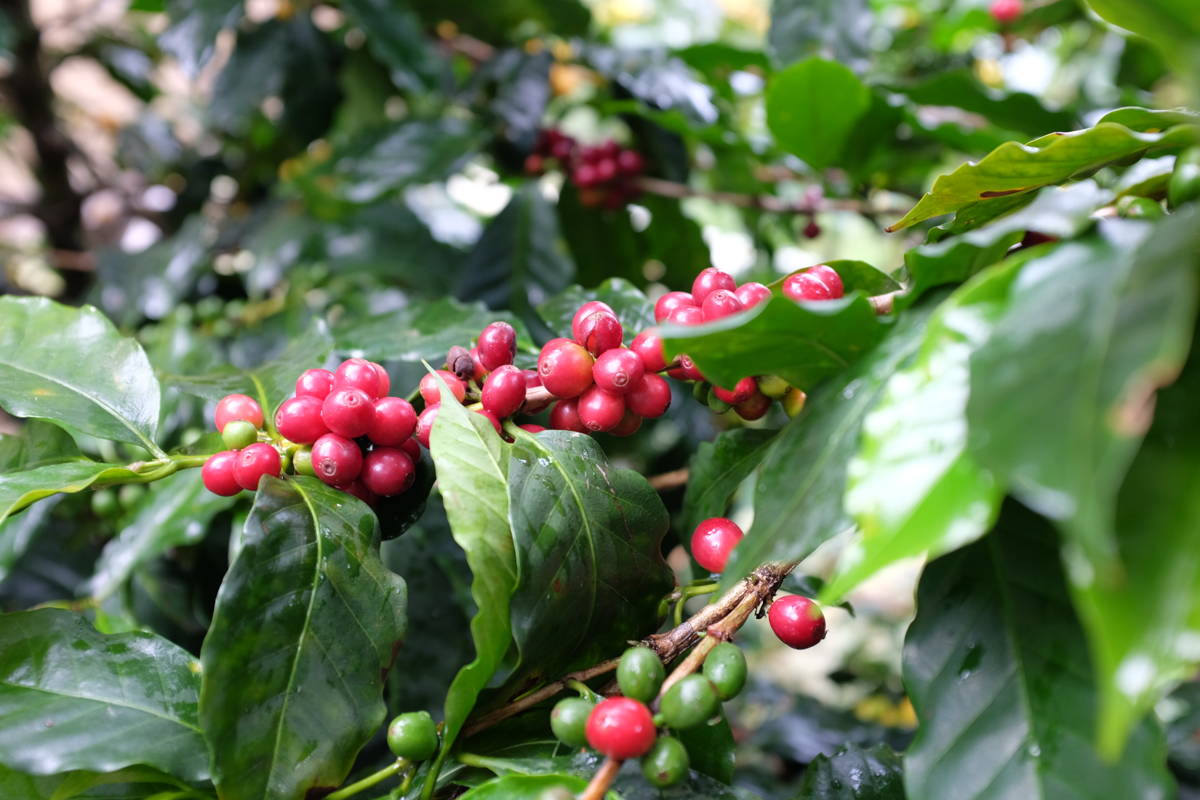
A contribution from Hannes in the category #Coffee Knowledge from 15 March 2021
Our coffees are grown organically and without the use of chemicals or pesticides. But not every variety carries an organic seal. In this article, we explain why and discuss the impact of organic labels on the coffee trade and the role they play in our trading model.
What does the EU organic label mean?
An organic seal is a quality and inspection label used to identify products from organic farming. The authorization to use a seal is regulated by the issuer and is linked to compliance with certain standards and requirements. The compliance of producers with the criteria is guaranteed by a documentation obligation and regular sampling and testing of goods.
The most popular quality label for organic farming in Europe is the EU organic label. Compliance with the regulations for all organic products in the EU is monitored by the relevant organic inspection body, and if an association seal is used, additionally by the relevant growers‘ association. For Coffee Circle this is e.g. the BCS Öko Garantie. The seal aims to promote organic farming and the associated higher biodiversity, greater animal welfare and less stressful cultivation methods. Important criteria are, for example, that the use of chemically synthetic pesticides and synthetic fertilizers are prohibited. There is also an absolute ban on the use of genetically modified organisms.
Was bedeutet das Bio-Siegel für Kaffee?
Applied to the product coffee, the organic seal means that an organic inspection body, such as BCS Öko Garantie, checks the entire value chain. First, the producer must be certified organic in origin. For this purpose, the farmers or the cooperative are inspected annually, i.e. interviews are conducted, the cultivation methods are examined and green coffee samples are tested. For this certification, a cooperative pays a fee of about 3,000 euros. If the certification is successful, the cooperative can offer its coffee as certified organic at a premium of 30 US cents per pound, which corresponds to an additional price of about 0.60 euros per kg.
The green coffee buyer can then decide whether to purchase the green coffee with or without organic certification. The organic seal therefore does not have to be purchased by the buyer on a mandatory basis. For example, buyers from the USA are not obliged to pay for the organic seal, as the EU organic seal does not offer them any added value.
If the buyer pays the price premium, he can continue to use the organic seal and print it on the packaging of the roasted coffees. The prerequisite is that the further processing steps (the roasting, bottling and distribution warehouse) are also certified organic. This means that our coffee roasting plant, i.e. Coffee Circle as the distributor, must also be certified by an organic inspection body. In practice, we are also subject to an annual inspection with the roasting plant and have to spend certification costs of about 1,000 euros for this.
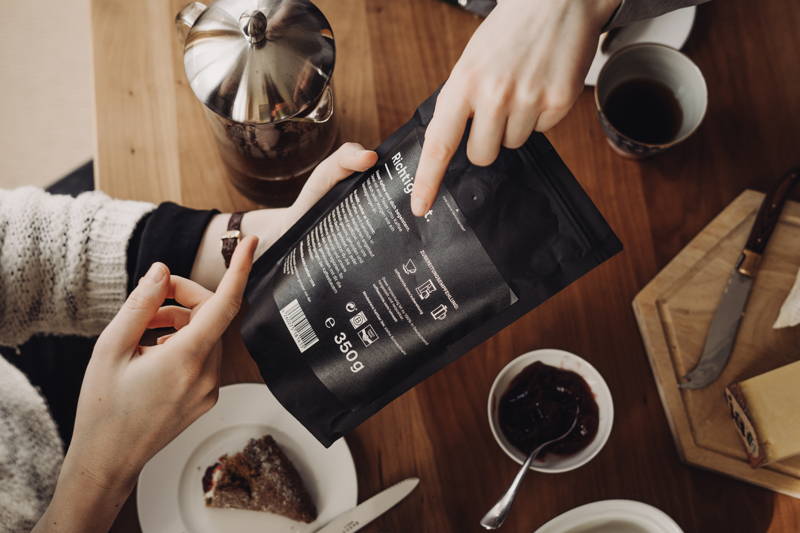
What positive effect does organic certification have in the growing countries?
Organic certification has multiple positive effects in the growing countries. First, certification creates awareness of the importance of organic farming. Ideally, the farmers are also rewarded monetarily for their organic farming methods, as the green coffee is sold at the price premium in the best case. Organic farming ensures that the soil is not subject to pesticide contamination and that biodiversity is not endangered. In addition, the workers in the cooperatives are not exposed to any health risks from the use of pesticides, which in some cases must be viewed very critically.
Furthermore, pesticides and chemical fertilizers pose a risk to the quality of the coffee, as the complexity of taste can be affected by chemical treatment. Organic farming, on the other hand, maintains quality. As a final point, the issue of accounting and management can be mentioned. As part of the certification process, the cooperative must transparently present and manage all available data. In practice, this voluntary administrative control ensures that cooperatives become more professional and work transparently.
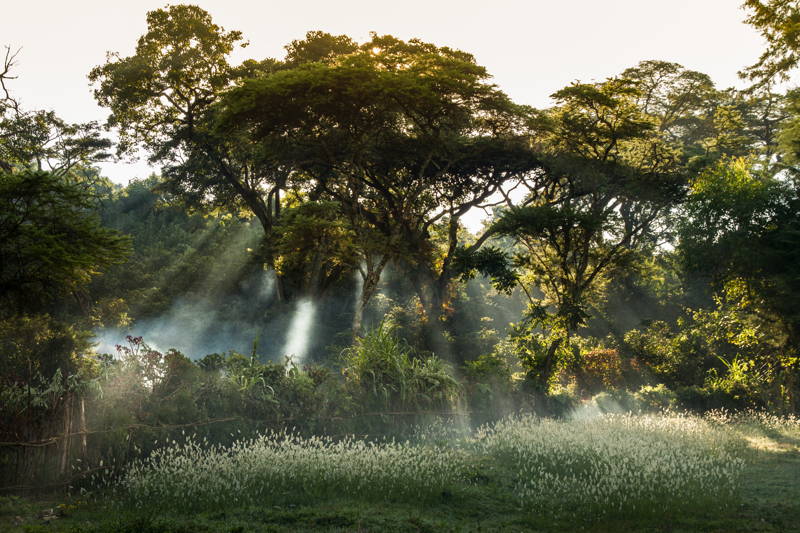
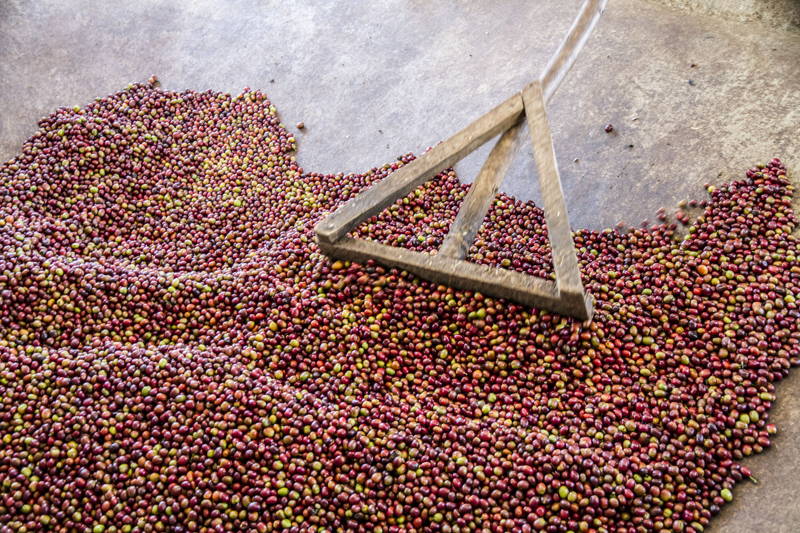
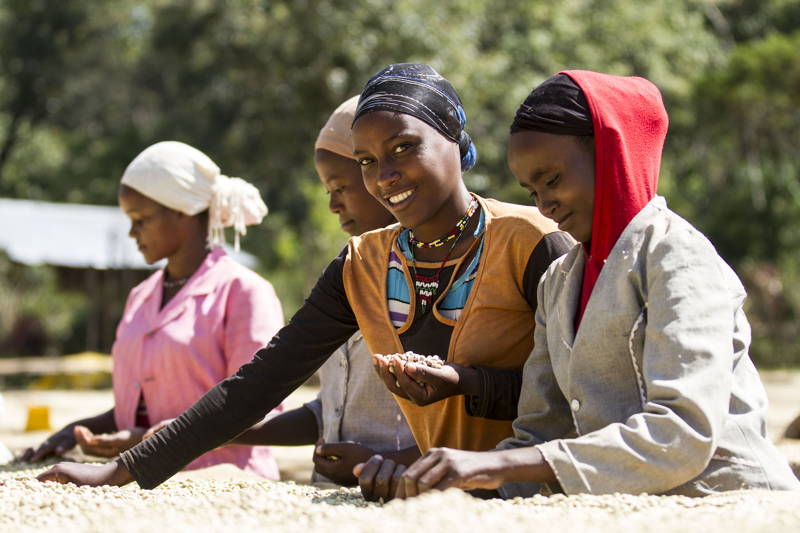
After roasting, chemicals are no longer detectable in the coffee
Organic certified roasted coffee, unlike many other foods, is not necessarily healthier than conventional roasted coffee, as possible toxins that still adhere to the green coffee beans are destroyed by the roasting process. After roasting, no residues can be detected, even in the case of heavily pesticide-contaminated green coffee. This is because these chemicals decompose under the roasting temperature. The organic compounds are converted into CO2 oxides, which escape as a gas and are thus no longer detectable. Nevertheless, organic cultivation is a purchasing criterion for us.
Problem: Certification costs in the country of origin are high
The organic label is not without problems, as certification costs are high at origin and thus can be a barrier to entry, especially for young and less established cooperatives that cannot yet raise the necessary funds for certification. Since there is no international coverage of the organic label, the EU label is irrelevant for international buyers. For this reason, it is uncertain up front for a cooperative whether it will even generate additional revenue from certification that exceeds the cost of certification. In some circumstances, another seal such as Rainforce Alliance may be relevant to the market for U.S. buyers. However, to obtain this, the cooperative would have to incur renewed certification costs, further increasing the risk that the cost of certification would not be borne.
Our experience with paying for the initial costs of organic certification was also less than ideal. Unfortunately, when we financed the Ilketunjo cooperative’s initial certification two years ago, no other buyer subsequently purchased the green coffee as certified organic. Therefore, the cooperative felt that continuing the certification was too risky and did not continue with it. The continuation continues to cost an annual fee of approximately 3,000 euros.
In addition, another criticism of the organic seal is that it is not linked to quality. Instead, a typical organic coffee may even be of inferior quality by comparison, since the price premium for the organic seal is factored into the end customer price. Since the price is still the most important purchasing argument, the large companies naturally do not want this to be too high and therefore tend to buy lower quality coffee.
Conclusion: What does the organic seal mean specifically for Coffee Circle in Ethiopia?
In Ethiopia, 95% of coffee cultivation is done by „smallholder farmers“, i.e. smallholders using traditional farming methods. This means that the coffee plants are grown in mixed cultures and are cultivated organically anyway without the use of chemically synthetic pesticides and synthetic fertilizers.
For us, this means in concrete terms that organic cultivation is a prerequisite for purchase, regardless of certification. We are personally on site to inspect the local conditions and only buy the coffee if we are sure that no chemical or synthetic means have been used. Quality plays a bigger role for us than certification. This means that we prefer to buy our coffees with an organic seal if the cooperative is certified organic, but if there is no seal, this is not an exclusion criterion for us.